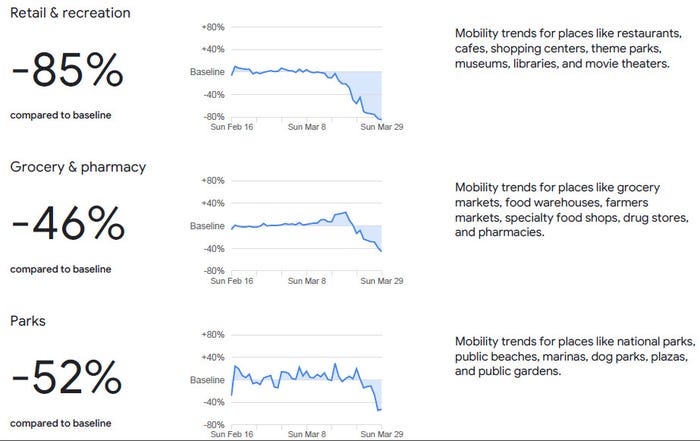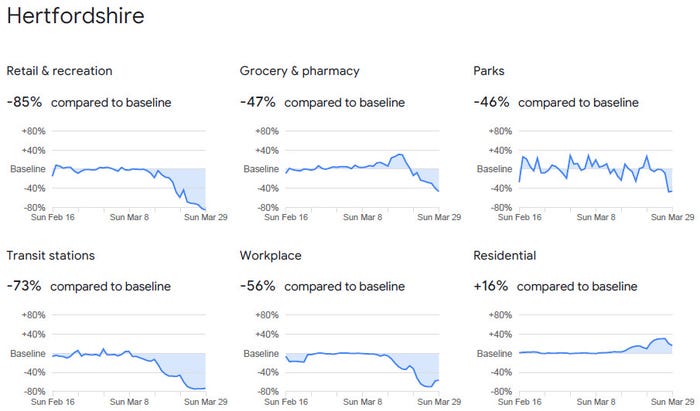Google shares global smartphone location data
US tech giant Google has been using location data from Android smartphones to track changes in user behaviour coz of coronavirus.
April 3, 2020

US tech giant Google has been using location data from Android smartphones to track changes in user behaviour coz of coronavirus.
Now it has activated a public tool, from which anyone can get a fairly comprehensive report into the mobility changes that have taken place in 131 countries and regions. A look at the UK one reveals people have mostly stopped going to recreational destinations like restaurants and museums, but 15% of them are still braving the plague for a spot of R&R. After a week of panic-buying, trips to the shops have halved, as have visits to the park.


“In addition to other resources public health officials might have, we hope these reports will help support decisions about how to manage the COVID-19 pandemic,” said the accompanying blog. “For example, this information could help officials understand changes in essential trips that can shape recommendations on business hours or inform delivery service offerings.
“Similarly, persistent visits to transportation hubs might indicate the need to add additional buses or trains in order to allow people who need to travel room to spread out for social distancing. Ultimately, understanding not only whether people are traveling, but also trends in destinations, can help officials design guidance to protect public health and essential needs of communities.”
Unsurprisingly, Google is aware of the privacy concerns many people have over their data being unilaterally appropriated and used without their explicit permission in the name of fighting the pandemic. It concluded the blog by insisting Android users don’t have anything to worry about.
“The Community Mobility Reports are powered by the same world-class anonymization technology that we use in our products every day. For these reports, we use differential privacy, which adds artificial noise to our datasets enabling high quality results without identifying any individual person.
“The insights are created with aggregated, anonymized sets of data from users who have turned on the Location History setting, which is off by default. Users who have Location History turned on can choose to turn the setting off at any time from their Google Account, and can always delete Location History data directly from their Timeline.”
About the Author(s)
You May Also Like








.png?width=300&auto=webp&quality=80&disable=upscale)


_1.jpg?width=300&auto=webp&quality=80&disable=upscale)


.png?width=800&auto=webp&quality=80&disable=upscale)